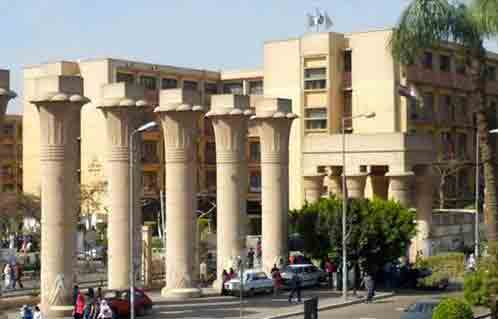Faculty of Arts prepares to open the first educational hall equipped for people with disabilities
Faculty of Arts is preparing to open the first educational hall specially designed to provide educational services for students with disabilities at Ain Shams University and Egyptian universities.
Prof. Dr. Suzan Al-Kellany, Dean of the Faculty, said that the faculty, in coordination with "Ethedico" Petrochemicals Company, headed by Eng. Abdul Maged Hegazy, provided logistical support for the establishment of a hall equipped with the latest educational means to serve students with special needs in order to decrease the cost of the university. On the other hand, the company bears the cost of establishing the hall as one of the company's corporate responsibility activities.
She noted that the opening is expected to be attended by the ministers of higher education and petroleum, the governors of Cairo and Alexandria, the president of Ain Shams University, as well as the president of the Egyptian Holding Company for Petrochemicals and the president of Ethedico Petrochemical Company.
The hall is designed to provide educational services for students with disabilities as a means of accessibility and integration. It is equipped with state-of-the-art technology, computers with internet access, speakers and electronic projectors to provide an excellent educational service, training courses and workshops to develop students' skills and prepare them for the market after graduation.
Al-Kellany added that the establishment of the hall was a continuation of the services provided by the faculty. A special unit was established to serve students with disabilities in November 2015 to achieve the principle of equal opportunities and integration of students with disabilities into the regular education system and applying the same curricula and tests.
There is a variety of forms of scientific support for the disabled person such as the subsidized book and the reduction of expenses or installment or exemption for those who are unable. A group was also established on various social networking sites to communicate with them and listen to their suggestions and demands to facilitate the educational process.
Dr. Suzan said that the Faculty embraces all types of disabilities (motor, muscular atrophy, hearing impaired, cerebral palsy, autism, mental disability, learning difficulties, psychological and neurological conditions, all students of integration schools, short-term patients, renal failure patients and tumors undergoing renal dialysis or chemotherapy sessions)
The activities offered to students with disabilities were integrated. The Faculty was the first to establish the Center of Visual Service to serve students who are visually impaired and blind in 2006, which is the first at the level of Arab universities to equal opportunities for the education of blind students using computer technology.
The Center aims at integrating the blind students fully into the academic and social fields by qualifying the blind student to apply the curriculum on the computer. Blind students are trained to use the computer, and training courses are held so that the student can deal with the device and provide opportunities for the student. The blind to see all the new cultures, through the cultural library and surfing the Internet.
Dr. Suzan referred to the conversion of the curriculum from paper books to electronic books, including Braille books for study, as well as the conversion of exams to Braille, encouraging blind students to write their own research, use the Internet and other sources independently without the need for external assistance.
The Center's blind students also participate in the student activities offered by the university from camps, conferences, cultural, sports and artistic activities, with the aim of integrating them into the student community.
Visual Center holds training courses on the use of the Internet, human development, Visual in Arabic, Visual in English, an auxiliary technology course and refresher courses to help new students master the Arabic and English vision program.
The center also provides a course for developing the skills of direction and movement, in order to raise self-confidence among students, and the ability to move from one place to another safely, and self-reliance in orientation and movement.


.svg)

